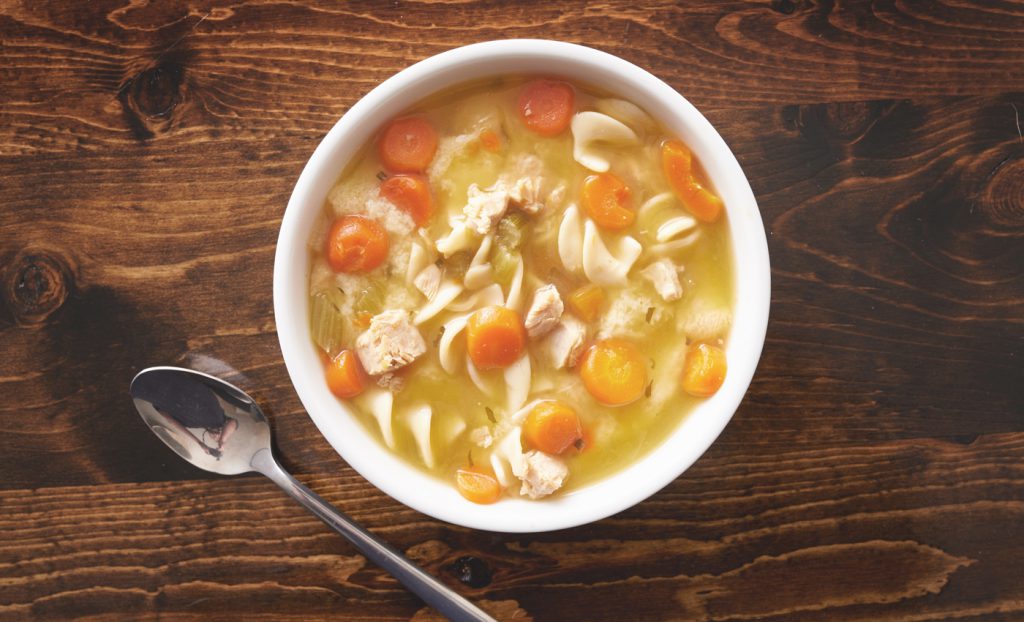Chicken Soup for the Soul: Comfort Food Fights Loneliness

Mashed potatoes, macaroni and cheese, meatloaf…they may be bad for your arteries, but according to an upcoming study in Psychological Science, a journal of the Association for Psychological Science, they’re good for your heart and emotions. The study focuses on “comfort food” and how it makes people feel.
“For me personally, food has always played a big role in my family,” says Jordan Troisi, a graduate student at the University of Buffalo, and lead author on the study. The study came out of the research program of his co-author Shira Gabriel, which has looked at social surrogates—non-human things that make people feel like they belong. Some people counteract loneliness by bonding with their favorite TV show, building virtual relationships with a celebrity or a movie character, or looking at pictures and mementos of loved ones. Troisi and Gabriel wondered if comfort food could have the same effect by making people think of their nearest and dearest.
In one experiment, in an attempt to make participants feel lonely, the researchers had them write for six minutes about a fight with someone close to them. Others were given an emotionally neutral writing assignment. Then, some people in each group wrote about the experience of eating a comfort food and others wrote about eating a new food. Finally, the researchers had participants complete questions about their levels of loneliness.
Writing about a fight with a close person made people feel lonely. But people who were generally secure in their relationships—something that was assessed before the experiment—were able to rescue themselves from loneliness by writing about a comfort food. “We have found that comfort foods are foods which are consistently associated with those close to us,” says Troisi. “Thinking about or consuming these foods later then serves as a reminder of those close others.” In their essays on comfort food, many people wrote about the experience of eating food with family and friends.
In another experiment, eating chicken soup in the lab made people think more about relationships, but only if they considered chicken soup to be a comfort food—a question they’d been asked long before the experiment, along with many other questions, so they wouldn’t remember it.
“Throughout everyone’s daily lives they experience stress, often associated with our connections with others,” Troisi says. “Comfort food can serve as a ready-made, easy resource for remedying a sense of loneliness. Keeping in mind this new research, it seems humans can find a number of ways to feel like we’re connected with others.”





APS regularly opens certain online articles for discussion on our website. Effective February 2021, you must be a logged-in APS member to post comments. By posting a comment, you agree to our Community Guidelines and the display of your profile information, including your name and affiliation. Any opinions, findings, conclusions, or recommendations present in article comments are those of the writers and do not necessarily reflect the views of APS or the article’s author. For more information, please see our Community Guidelines.
Please login with your APS account to comment.